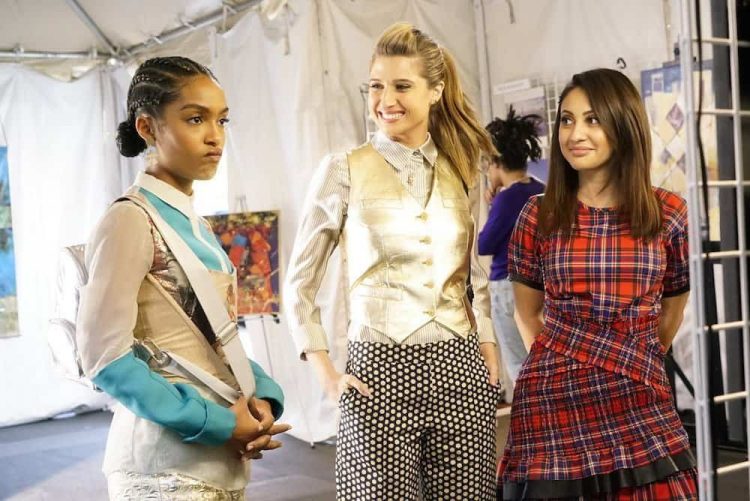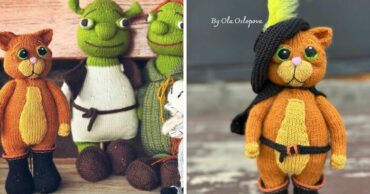
It seems a lot of things are being called revolutionary these days and Grown-ish has been added to the list. as of one episode of the show in which Zoey found herself stuck in an Instagram spiral it would seem that people are now claiming that the show is becoming something that is influencing a great deal of change in the media and the sitcom world as a whole. Zoey’s relationship with her boyfriend and the searching she does about his past seems to lead to a freak out that wasn’t meant to happen but was still the result of going too far into a person’s past and then accidentally tripping over something that she wasn’t ready to see. Whatever happened to just asking people about their past?
This kind of mishap seems to what people are think of as being revolutionary these days as the portrayal of a young black woman on the small screen seems to be a breath of fresh air in an era when young black women don’t seem to be given much of any time to develop any real story lines of their own. It would kind of seem that people have forgotten about the past and the fact that many sitcoms have come along that have allowed young black women to pursue a story line that has largely to do with them and their lives, but it’s kind of understandable given that many of those that are living in the current era weren’t around in the 80s and 90s or were simply too young to remember some of the shows that aired around that time. It is easy to understand how young black women seem to be left out a lot as they either become sidekicks and don’t have much development or become increasingly stereotypical, but it’s also worth noting that Grown-ish is not the first sitcom in which a young black woman has been given a prominent role.
This ‘change in the narrative’ is enticing and definitely has the attention of many individuals that have been waiting for such a show to appear, but for those of old dogs that have seen these kind of shows come and go it’s just another drop in the sitcom bucket that has been leading up to the increased diversity on TV. As of the 2000s the diversity of sitcoms was changing and was giving rise to new and exciting shows that finally seemed to cover different ideas and story lines that hadn’t been seen before. But as you might have seen for quite some time a lot of women of color were primarily supporting characters and not much else. Those that did manage to land a leading role in their own shows were either part of a group, a duo, or didn’t last quite as long since the whole idea seemed to implode.
It’s very true this show is revolutionary in the way it’s been built up but the one thing that always seems to get left behind when talking about any show is how it was built up in the first place. Yes, the show has taken some big strides forward and has definitely found its own voice, but without the shows that have come before this show wouldn’t have been possible. Just a passing mention is all that’s needed, a bit of acknowledgment, and after that it’s all up to the show to stand on its own. A lot of us love to see shows that can carry their own weight and have something to say with actors that are skilled and carry enough talent to really keep the show afloat. But if the show happens to swing the other way, meaning keeping Zoey as the lead and keeping all other women of any color as sidekicks, doesn’t that seem to suggest that things have now been engineered to favor young women of color? It’s an old argument that’s not worth instigating at the moment, but it’s still a question that seems to hang in the air.
The argument that young black women are often seen as stereotypical and as one possible character isn’t entirely wrong but coming from a lot of people it’s been skewed in a very negative way. In other words, the idea that all young black women that play supportive roles are sassy, loud, angry, and even violent isn’t anywhere near accurate when speaking to all sitcoms. In fact there have been a good number of young black women who typically act as the voice of reason for their more out of control friends that are playing the lead, meaning they create a very positive influence. So while the stereotype argument does hold water, it’s not as overwhelming as people like to make it out to be.
It would seem that watching a young black woman deal with everyday issues and do so in a very expected manner as is seen with any other female lead is considered to be revolutionary at this point, and it’s kind of pointless to argue since there are simply too many people that would resort to shouting down the person that tried. This kind of behavior in sitcoms from young black women hasn’t been the only role that they’ve been thrust into for many years now, meaning that whoever thinks that’s the case hasn’t been paying attention to TV as much as they might claim to have done for so long. It’s revolutionary for the era perhaps, but in the scope of history it’s a similar shift that’s happened before.
 Follow Us
Follow Us




